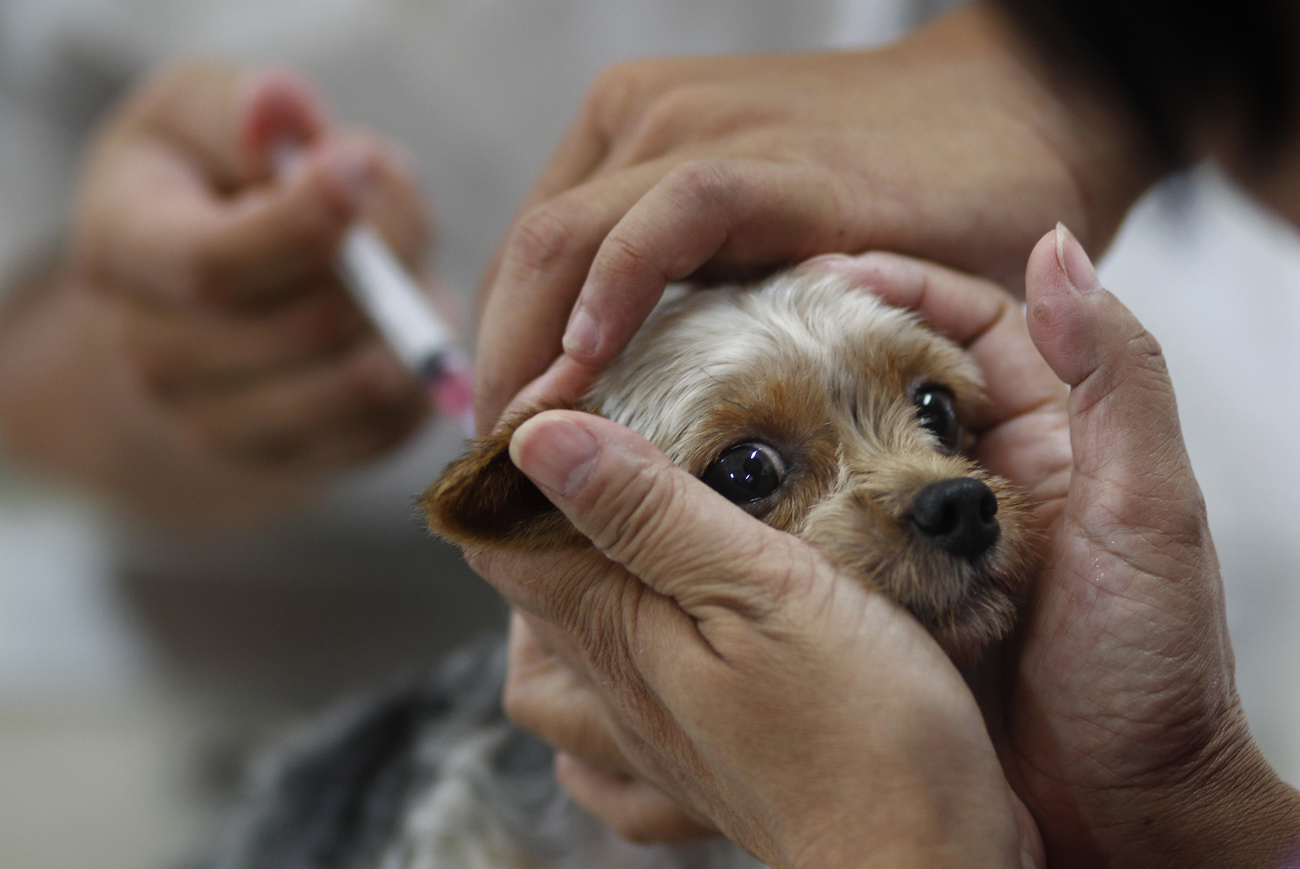
Serious shortage of rabies vaccine supply in Switzerland

Switzerland has a shortage of vaccines against rabies. Vaccines from compulsory stocks will therefore only be distributed for vital treatments until February 2024, as announced by the Federal Office for National Economic Supply on Friday.
The focus is on people who have been bitten by an animal, as well as occupationally exposed persons. These include, for example, people working in veterinary medicine or animal care, the Federal Office for National Economic Supply added.
No rabies vaccine from compulsory stocks will be available for travel medicine until at least February 2024. During a severe shortage situation, no vaccines will be distributed from the compulsory stocks. This will ensure that the vaccines required for the two vital treatments are available.
According to the Federal Office for National Economic Supply, in a normal supply situation, a larger proportion of the rabies vaccines are used for travel medicine. A preventive rabies vaccination is recommended for some high-risk countries, but is not mandatory. It makes sense depending on the country, duration and type of trip to remote regions. Travel medicine can still carry out these vaccinations with free goods.

More
Worrying shortage of medicines in Switzerland
The most frequent transmissions of rabies are caused by animal bites. However, infectious saliva from animals can also infect people via superficial skin injuries, for example.
Easing expected in around two years
There are two suppliers of rabies vaccines in Switzerland. According to the BWL, both have had to draw on compulsory stocks since the end of 2023. Supplies have been delayed – and there is a global shortage. Until the bottlenecks are overcome, the compulsory stocks must therefore suffice.
The ordinance on the compulsory stockpiling of vaccines for human medicine has therefore been amended accordingly. It comes into force on February 26. According to the Federal Office for National Economic Supply, the supply situation is expected to ease in around two years.
The goods will be released from the compulsory stockpile in small quantities. This ensures that they are used exclusively for vital treatments, according to the Federal Office for National Economic Supply. As soon as compulsory stocks come onto the market, the cantonal medical officers inform the medical profession that the intended use is restricted.
Translated from German by DeepL/amva
This news story has been written and carefully fact-checked by an external editorial team. At SWI swissinfo.ch we select the most relevant news for an international audience and use automatic translation tools such as DeepL to translate it into English. Providing you with automatically translated news gives us the time to write more in-depth articles.
If you want to know more about how we work, have a look here, and if you have feedback on this news story please write to english@swissinfo.ch.

In compliance with the JTI standards
More: SWI swissinfo.ch certified by the Journalism Trust Initiative






























You can find an overview of ongoing debates with our journalists here . Please join us!
If you want to start a conversation about a topic raised in this article or want to report factual errors, email us at english@swissinfo.ch.